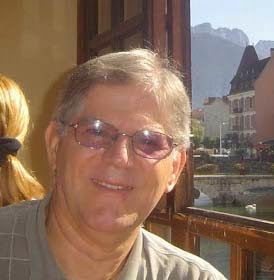Tuesday, June 23, 2015
About Race (again)
by Tom Kando
Once again, we have to think and talk about race. (Do we ever NOT need to?). Today, I am going to tiptoe through this minefield once more:
A few recent news events:
(1) The Dolezal “Scandal”: In early June 2015, it became public knowledge that Rachel Dolezal, a white woman, had been passing as a black woman. She is a civil rights activist and she was the president of the Spokane chapter of the NAACP. Her subterfuge became known because she was outed by her parents, who provided evidence that Rachel is fully of white extraction.
(2) The June 17 mass murder. Dylann Roof, a 21-year white man, murdered nine innocent black people in a Charleston church, after spending an hour praying with them.
3) The ensuing “debate” about the Confederate flag: People are now arguing as to whether the confederate flag should continue to fly in various public places, or be taken down.
Read more...
Sunday, June 21, 2015
Is America the Second Rome? - Part Three.
 by Tom Kando
by Tom Kando
Abstract: This article does the following: (1) It shows that the continuities between modern-day Europe and America are in many ways similar to those between Ancient Greece and Ancient Rome. (2) using an organicist theoretical framework, it traces and compares the births, life spans, transformations, similarities, golden ages, and (possible) declines of America and Ancient Rome. (3) Based on generational theory, it asks whether future American history is likely to repeat Ancient Roman history, including Roman mistakes.
3A. Is America’s Future Likely to Resemble Rome’s Past?
There is no law of history that requires America to replicate Rome’s history. At the same time, we should not be so overconfident as to proclaim the superiority of 21st century society over ancient Rome in its adaptability and its ability to meet challenges.
Read more...
Friday, June 12, 2015
Is America the Second Rome?- Part Two
by Tom Kando
Abstract: This article does the following: (1) It shows that the continuities between modern-day Europe and America are in many ways similar to those between Ancient Greece and Ancient Rome. (2) using an organicist theoretical framework, it traces and compares the births, life spans, transformations, similarities, golden ages, and (possible) declines of America and Ancient Rome. (3) Based on generational theory, it asks whether future American history is likely to repeat Ancient Roman history, including Roman mistakes.
2. Two Histories: (A) Origins; (B) Timelines/ Life spans; (C) Transformations and Major Milestones; (D) Additional similarities; (E) Golden Age; (F) Decline and Fluctuations.
According to the “organicist” model in sociology and history, societies are born, grow, transition from one developmental stage to the next, as do individuals. They undergo experiences which can be transformative, they decay and die, as do organisms. (See for example Don Martindale, The Nature and Types of Sociological Theory, and Arnold Toynbee, A Study of History). This paradigm has much to commend it, and it can be used to examine the histories of America and Ancient Rome.
Read more...
King vs. Burwell: How The Republican Beast is Feasting on Ignorance
 by Madeleine Kando
by Madeleine Kando
The Affordable Care Act, also known as Obamacare, is once again under attack by Republicans. Since its birth in 2010, they have tried to dismantle it, either piecemeal or as a whole, and have taken every opportunity to badmouth it, without offering any significant alternatives.
They first derided the ACA by pointing to the many technical problems that the healthcare.gov website suffered from, which caused a bunch of delays. But when those problems got fixed and enrollment surpassed expectations, proving that Obamacare was a good thing, Republicans decided to challenge the constitutionality of the whole Act. When the United States Supreme Court upheld the Individual Mandate, they went after some of the provisions of the Act.
In Hobby Lobby vs. Burwell, the Supreme Court ruled that requiring family-owned corporations to pay for insurance coverage for certain forms of contraception under the Affordable Care Act violated a federal law protecting religious freedom. Obamacare lost on that front.
Read more...
Wednesday, June 10, 2015
Is America the Second Rome? - Part One
by Tom Kando
Abstract: This article does the following: (1) It shows that the continuities between modern-day Europe and America are in many ways similar to those between Ancient Greece and Ancient Rome. (2) using an organicist theoretical framework, it traces and compares the births, life spans, transformations, similarities, golden ages, and (possible) declines of America and Ancient Rome. (3) Based on generational theory, it asks whether future American history is likely to repeat Ancient Roman history, including Roman mistakes.
1. The Parallel: Modern-day America Continues and Amplifies Europe, as Ancient Rome Continued and Amplified Ancient Greece:
Ever since my teen years in Gymnasium, I have been struck by the similarities between the history of the modern Western world and Greco-Roman Antiquity. It has always appeared to me that, separated by two millennia, Western man has TWICE chartered a very similar course.
Read more...
Thursday, June 4, 2015
Paradoxes
by Tom Kando
I am fascinated by paradoxes. Sometimes, they can serve as amusing conversation pieces at a dinner party.
Here is a familiar one: “This sentence is false.” This is of course an exercise in circular logic: if the sentence is indeed false, then wouldn’t it be telling you the truth by telling you it was false? And if the sentence was true, then wouldn’t its declaration of falsity render it untrue?
But right now, I just want to select a few “numerical” paradoxes that I have had on my mind over the years. To mathematicians and statisticians (neither of which I am), this post will appear innumerate and dilettantistic. Nevertheless consider the following:
Read more...
Wednesday, June 3, 2015
Things that Didn't Happen
 by Madeleine Kando
by Madeleine Kando

Today so many things didn't happen to me, that I feel I should write about them. On other days, things start to happen as soon as I wake up. I trip over some carelessly strewn about item on my way to the kitchen to make my first cup of coffee, but today I made it to the kitchen without stubbing my toes. I didn't find the coffee jar empty and didn't have to resort to the dreaded emergency decaf container; I didn't burn the milk and didn't have to spend half an hour cleaning the stove.
While I was not doing all these things, I couldn't help but notice other things that had not happened: the pile of laundry was still waiting patiently next to the washing machine and the dirty dishes had not seen any action either.
As the day progressed, more and more things gathered on the didn't happen pile. While I was taking a shower, I noticed that the paper thin sliver of soap had not been replaced by a healthy, new fresh bar and the hair ball in the drain had not budged, giving my feet a good 15 minute Read more...
Subscribe to:
Posts (Atom)








